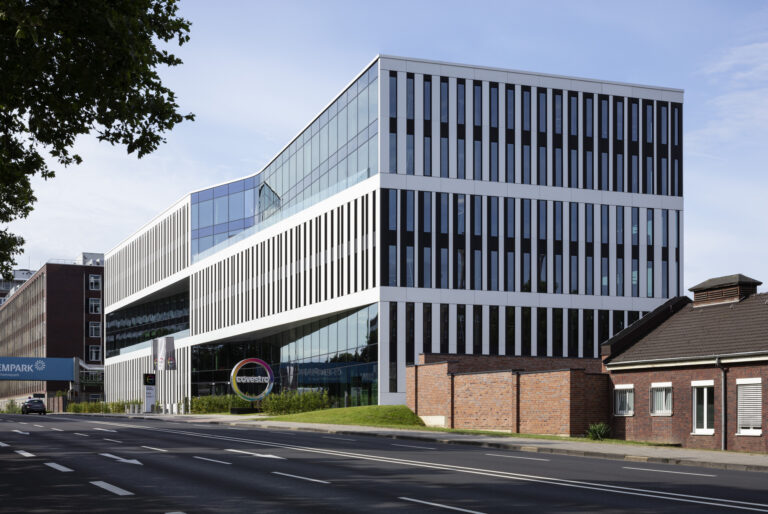IGBC Green Design Competition 2023
IGBC Green Design Competition 2023

“Changing individual and community behaviour alone can have a significant impact on the environmental and climate crises”
Even a small decision we take towards making sustainable choices—whether as an individual, a community or an institution—has the potential to lead us to a healthier future.
This year, the IGBC Green Design Competition calls for sustainable design solutions inspired by the focus on individual action as promoted by LiFE. Participants can choose to come up with ideas at any one of the three distinct scales of S, M, and L targeting positive change at different scales for the built environment. With each scale of the intervention, they’ll have the opportunity to create solutions that push the users towards environmentally conscious and sensible lifestyles.
Promoting diverse approaches based on geographical, cultural and climatic contexts, these projects should encourage behavioural changes in the lifestyles of the population. When scaled up and implemented in real-world situations, these projects should lead us towards a sustainable future for all.
Scales of intervention:
● For S design solutions, create interventions to existing buildings or spaces
which alter or enhance the way they function in a way that promotes a
sustainable lifestyle.
○ A familiar example of this would be the philosophy of jugaad, a
resourceful and innovative approach to solving problems closely
imbibed in us through traditional knowledge.
○ These plug-ins or add-ons to building elements like windows, roofs,
and so on or toolkits of products for quick implementation on-site,
should help modify individual behaviour towards conscious
consumption.
● For M design solutions, imagine interventions at the scale of a building.
○ Think of self-sustaining buildings, that act as a benchmark for
circularity in architecture and life in general. You could redesign your
own apartment building, college block, office building, etc. where you
grow your own food, process, recycle and reuse your own waste,
generate your own electricity and so on.
○ These design interventions should influence community-level
changes in lifestyle that in turn help nudge industries and markets to
cater their products to the conscious consumer. Through your
scheme, create a demand for sustainable HVAC solutions,
water-saving products, energy-efficient systems, etc.
● For L design solutions intervene at the neighbourhood, urban/rural scale
where they cause systemic change.
○ These could be housing, mixed-use developments, walkable
neighbourhood developments, etc. that influence the behaviour of an
entire population.
○ Remember to address the varied lifestyles and family structures,
concepts like co-living, work-from-home structures, etc.
○ Include neighbourhood-level solutions that utilise shared resources
efficiently and thoughtfully, e.g. water-management systems,
renewable energy generation and distribution, recycling-reusing, etc.
Important Dates:
Registrations open: 21st April 2023
Registration deadline: 7th August 2023
Submission deadline: 15th August 2023
Site and Context:
For S interventions, choose a building, room, or area not greater in size than 25 sq. m.
For M interventions, choose a site with an area not greater than 1,000 sq. m.
For L interventions, choose a site up to 1-2 hectares in size.
The selected site can be located in Rural, Urban, or Suburban areas in any part of South Asia, given that the area requires a redesign to take a step towards circularity.
As per the context and location of the site, the users can vary. Each team is free to generate its own programme and design framework.
Clearly define what your spaces/product(s) stand for. Evolve a sustainable philosophy for your design.
Follow locally applicable building bye-laws or refer to the NBC in the absence of local bye-laws. Mention the conditions on your design sheets briefly.
.
Even a small decision we take towards making sustainable choices—whether as an individual, a community or an institution—has the potential to lead us to a healthier future.
This year, the IGBC Green Design Competition calls for sustainable design solutions inspired by the focus on individual action as promoted by LiFE. Participants can choose to come up with ideas at any one of the three distinct scales of S, M, and L targeting positive change at different scales for the built environment. With each scale of the intervention, they’ll have the opportunity to create solutions that push the users towards environmentally conscious and sensible lifestyles.
CII-IGBC, supported by Ethos and Daikin, and MoEF&CC GoI, Mission LiFE
Link to Registration form
Awards:
Winners will be awarded in each of the Categories below:
S interventions
First Prize: ₹ 50,000/- in cash and a certificate
Second Prize: ₹ 25,000/- in cash and a certificate
M interventions
First Prize: ₹ 50,000/- in cash and a certificate
Second Prize: ₹ 25,000/- in cash and a certificate
L interventions
First Prize: ₹ 50,000/- in cash and a certificate
Second Prize: ₹ 25,000/- in cash and a certificate
Open to the public/Minimum requirements (Open to anyone that complies with the requirements), Single stage (Winners selected immediately)
Eligibility:
The competition is open to –
1. All current Undergraduate students enrolled in Architecture and Design Courses.
2. All Postgraduate students enrolled in Architecture, Planning and Design Courses
3. All recently graduated students (graduated in 2021 and later)
Team Composition:
Maximum of two members per team.
For participants within the Indian Subcontinent only.
Registration Opens April 21, 2023
Registration Closes August 7, 2023
Deadline to Submit Project August 15, 2023
Winners announcement Date
Location of Project (if developed)
Banner, Poster, Brochure or Triptic of Competition




